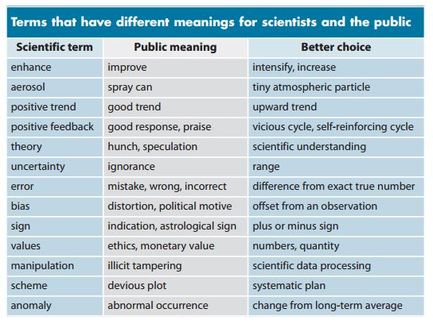|
Guest writer Dylan Nehrenberg is a first year medical student at the University of Washington. He graduated from Pacific Lutheran University in May 2016 with a BS in Biochemistry. Dylan participated in PLU's International Honors Program which emphasizes global perspective, discussion, and consideration of the ethical implications of topics discussed. He is from Kent, Washington and plays the violin. From the literary work of George Orwell’s 1984 to the colorblind rhetoric that inhibits proactive discussions of race in Michelle Alexander’s, The New Jim Crow, human language, as the medium for understanding, directs the actions of all persons. But in our century, language has reached a new power. As of 29 August 2016, a new geological epoch has been declared—the Anthropocene—and with it language has become a geologic force. Exxon Mobile should be well-known for its decades-long disinformation campaign against climate change. In fact, it has been argued that Exxon Mobile is solely responsible for the entirety of anti-climate change rhetoric. While for this reason Exxon Mobile has become a symbol of global corruption, I do not think it fair to blame them entirely. We, the general population, but more specifically, the scientific population, are also to blame. While we have sharpened our scientific arguments, accumulated innumerable data, and compiled clever scientific-phrases to argue for the existence of climate change, we have also waged the wrong battle. Exxon Mobile pitched science against language. Language—the framework of every epistemology, the basis of knowledge and understanding, the conduit between world and self—won an easy battle against science. Science lends itself well to only the few, and the language of the forefront scientist rings different bells in the ears of those who have chosen to pursue other fields. A degree of responsibility falls to the scientist, for they must not only learn to communicate with the workings of nature, but with persons as well. In 2011, only 47% of Americans believed that climate change is caused by human activities. This is problematic, for though we recognize ourselves as a geologic force, those who believe that force is destructive are the minority. A publication by Somerville and Hassol attribute this minority to the inability of scientists to “craft simple, clear messages . . . . [and] to put new findings into context.” Somerville and Hassol argue that more public-centered word choice would help communicate the reality of climate change to both media outlets and the public.  Richard C. J. Somerville and Susan Joy Hassol, “Communicating the science of climate change” Richard C. J. Somerville and Susan Joy Hassol, “Communicating the science of climate change” I agree, but new language is not sufficient. The language of climate change often involves discussion of the future, a place in time that is neither absolute nor immediately understandable. Our understanding of the future comes from the past, and so too must our understanding of climate change. Climate change is not an isolated phenomenon. It has an incredible history, linked to social and economic hierarchies of class, wonders of discovery and exploration, and the basic human desire for growth. Climate change was enabled by scientific breakthroughs in the industrial revolution. If we go back, we recognize that theses scientific breakthroughs are a product of class divisions—of a few persons with immense resources and great curiosity. But these divisions weren’t limited to class, there were country divisions as well. The influx of resources from colonialism, which impoverished many countries in order to enrich a few, also laid the necessary framework for the industrialization and subsequent climate change. Those same countries that were colonized—with some exceptions—are the same countries that are now most at risk for climate disaster. These are the same countries which now need their own industrial revolution to join the world economic stage, and have found that the bulk of available carbon to burn has already been sequestered by those imperial powers that had stolen their land. It is in within this rich social and historical context that the language of climate change must be developed, and it will require that the scientist work alongside the English professor, anthropologist, novelist. It is only once we develop a common language that reaches persons in all walks of life, a language that gives them the tools necessary to understand climate change on the level of individual human beings, that we can push back against the decades of linguistic editing endeavored by Exxon Mobile and other members of the disinformation campaign. We must show climate change, beyond science, as it truly is: A shocking, alarming ideological colonization, a continuation of discrimination against those with little, which bargains lives for comfort and benefit. Our affluence is not without context, and so it is our responsibility to develop this new language and to return the privileges with which we’ve been born. We must not let the Sirens of comfortable living draw us to a coast of ignorance and indifference. We must look down and see the throne of past and future bargained lives upon which we sit. Sources: Damian Carrington, "The Anthropocene epoch: scientists declare dawn of human-influenced age" https://www.theguardian.com/environment/2016/aug/29/declare-anthropocene-epoch-experts-urge-geological-congress-human-impact-earth Shannon Hall, "Exxon Knew about Climate Change almost 40 Years Ago" https://www.scientificamerican.com/article/exxon-knew-about-climate-change-almost-40-years-ago/# Richard C. J. Somerville and Susan Joy Hassol, “Communicating the science of climate change” https://www.climatecommunication.org/wp-content/uploads/2011/10/Somerville-Hassol-Physics-Today-2011.pdf
1 Comment
Rainey
7/10/2016 03:52:13 pm
Dylan! I'm so glad you posted this - it is such an important issue that is not talked about enough and also something I hope to keep in mind throughout my career. Thank you!
Reply
Leave a Reply. |
Categories
All
Archives
March 2024
|

 RSS Feed
RSS Feed
